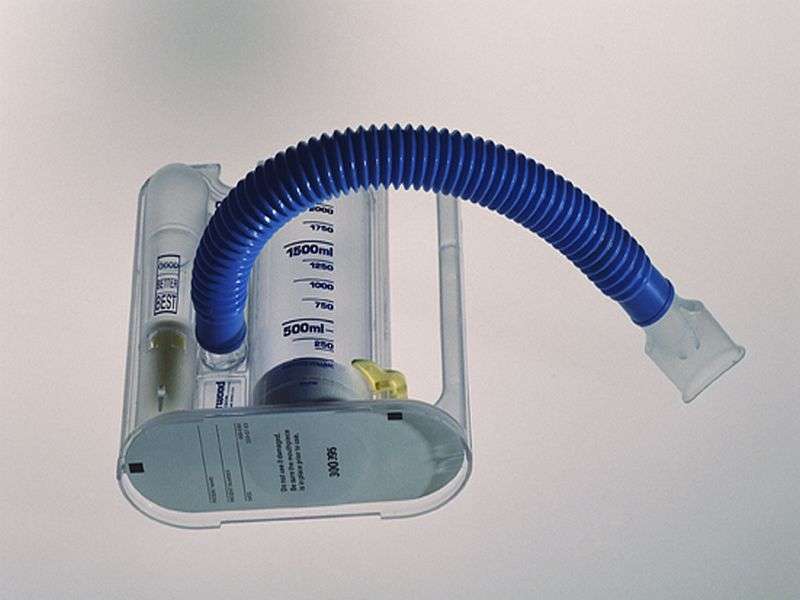(HealthDay)—Spirometers used in primary care offices are frequently inaccurate, according to a study published online Sept. 6 in the Annals of the American Thoracic Society.
Matthew J. Hegewald, M.D., from Intermountain Healthcare in Murray, Utah, and colleagues tested 17 spirometers used in primary care offices with a waveform generator to assess spirometer accuracy. They determined the clinical significance of inaccurate instruments by applying the forced expiratory volume in one second (FEV1)/forced vital capacity (FVC) error from an obstructed waveform to a clinical data set.
The researchers found that only one of the spirometers met the accuracy criteria, with mean errors ranging from 1.7 to 3.1 percent for FVC, FEV1, and FEV1/FVC. Twenty-eight percent of tests were re-categorized from obstructed to non-obstructed when applying the percent error to a clinical data set. Sixty percent of the spirograms reviewed were considered acceptable for clinical use. No correlation was seen between the number of tests performed by a clinic and quality of spirometry.
"Our results raise concerns regarding the utility of spirometry obtained in primary care offices without greater attention to quality assurance and training," the authors write.
More information: Full Text (subscription or payment may be required)
Copyright © 2016 HealthDay. All rights reserved.























